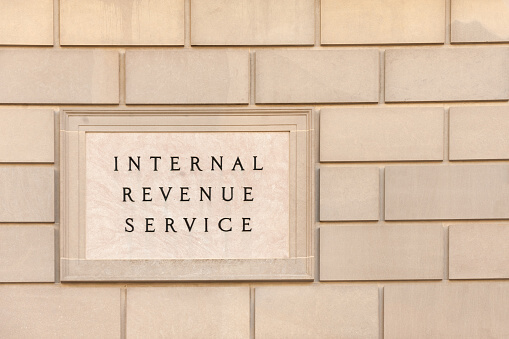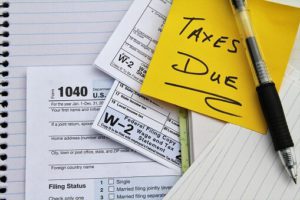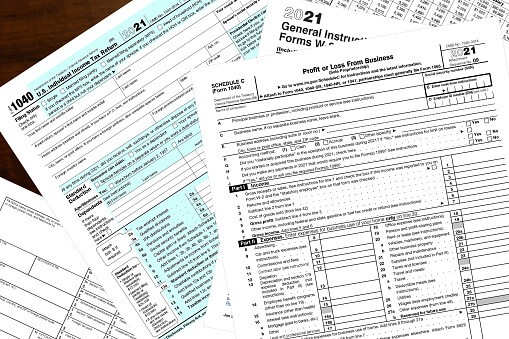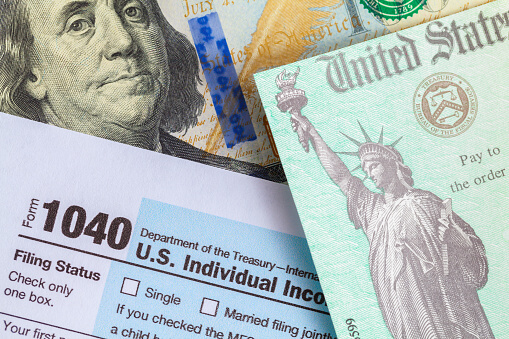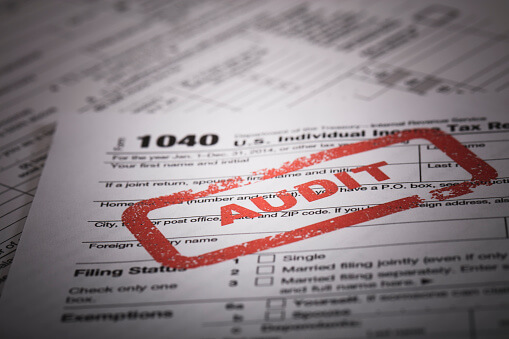Can the IRS Take Money Out of Your Bank Account?
I am licensed as a tax lawyer with the US Tax Court in Washington DC with license number 51. I have been practicing tax resolution since 1988. The IRS code may be complicated, but tax resolution does not have to be. In enforcing tax laws, the IRS levies can attach real estate, tax refunds, social security benefits, bank accounts, and wages.

Only a lawyer can represent you in tax court. Licensed tax professionals like a CPA or enrolled agent can offer a settlement to stop tax obligation collection. You can settle small internal revenue service tax debts and enter into payment agreements via phone call. We think every IRS bank levy should be reviewed by a licensed tax professional. The matter needs to be taken care of by someone who can file bankruptcy if you owe taxes and offer advice on your financial situation.
A person with a background in accounting by someone who ran an accounting division or sat for the CPA exam helps. Someone who worked for the tax department as an assistant attorney general is even better. I have been doing this since 1988 and offer a free consultation.
 The IRS Bank Levy Notice and IRS Freeze
The IRS Bank Levy Notice and IRS Freeze
Essentially the IRS levy is designed to be a lien against everything, including the dirt under your shoes. The tax levy can attach to your rental income if you rent property to others. It connects to your accounts receivables and all of your physical assets. Levying property is a simple process for them, and they don’t hesitate to levy personal property. An IRS lien is valid for ten years. The IRS can levy accounts and even attaches them to your retirement accounts. However, IRS liens must comply with state law which says yes, it can attach, but you can’t force money from the bank or retirement account.
How Do I Stop IRS Garnishments and Seizure of a Bank Account
There are about seven ways to stop an IRS garnishment. The best method is to do these options before a bank account is attached.
- If you are poor and have a financial hardship, you can apply for the currently uncollectible status, and the IRS will stop collections and seizing bank accounts for your tax bill due to your economic hardship.
- An installment agreement like a partial payment plan or regular payment plan will also stop an IRS garnishment. You can have fixed installments or payments which adjust. This ages the account for bankruptcy purposes if your goal is to bankrupt the debt eventually.
- Bankruptcy law allows a federal court order called a stay to stop collections when a bankruptcy is filed against all creditors, including the IRS. The tax liability must be three years old.
- An offer of compromise will also stop collections. This will not age an account for bankruptcy purposes.
- You can also ask for a one-time abatement of penalties, but the principle of the debt remains.
Can the IRS Take Money From My Bank Account?
The levy attaches to a joint account. When the IRS plans to do a bank levy and take money from your bank for previous tax returns, it has assessed a tax liability and may or may not have sent out multiple notices before using an IRS bank levy. Your bank account is generally protected if the only funds in the account are from welfare checks or social security funds. But as soon as funds are mixed with other funds, all protection is lost. And once the money leaves the bank account, do not expect the IRS to return it.
For a short period, the money from your bank is merely frozen to ensure the bank is only turning over funds for the correct person. The bank processes a legal seizure that may cause insufficient funds problems. You can seek a bankruptcy attorney who will be able to make sure the funds never leave the account by timely filing a bankruptcy. It takes time to levy property, and it takes time for a levy release to happen. If you deposit money after the seizure, it is usually safe.
However, when a new levy happens, the IRS seizes the account again.
What Else Can the IRS Attach?
A tax levy can only result from liability. If a person fails to file a tax return, the IRS may file a substitute for the return for you. The tax debt does not age for statute of limitation and bankruptcy purposes. The IRS then can collect unpaid taxes essentially forever. The statute of limitations only applies to filing income tax returns voluntarily.
The IRS will attach homes, do wage garnishments, and communicate with any state tax agency in its search to levy bank account funds.
Notice Requirements
IRS can do a bank levy and seize money from your bank account for your tax debt. An IRS levy does not require that you receive their final notice of intent to levy your bank account.
The IRS only has to send notice of intent to levy your bank account or wages to your last known address. The final notice of intent to levy your bank account or wage garnishment is designed to give you little or no time to stop the levy process.
The department of education does not have to give you any substantial notice either when it collects student loans.
Can the IRS Take Money from My Social Security in a Bank Account?
The IRS can levy funds and do a 100% garnishment of a bank account and tax dollars refunds. That is because the treasury department issues these checks, and the non-payment of benefits is merely a set-off of funds the treasury department already has in its possession.
A government agency such as social security has no control over the treasury, and IRS does not issue a check. Up to 15% of your social security can be attached, but the IRS and Department of Education must leave you at least $750.00.
This can devastate retired and disabled people who depend on automatic payments. However, these people can file for the currently uncollectible status or bankruptcy and often discharge the debt. The IRS can garnish wages, and the garnishment can be 100% garnishment if they allege fraud or attempt to evade it.
Can the IRS Do a 100% Garnishment?
The IRS can sometimes do a 100% garnishment, especially when fraud or attempts to evade collections is a problem. This includes not filing returns or filing incomplete and repeatedly filing late returns. It usually will only take 100% of a bank account.
In one case where a mother was taking care of a child, and she asked the enforcement agent to come back later, the tax transcript was noted with an attempt to evade collections, and that notation meant the woman could not discharge her taxes in bankruptcy.
Contacting Nick Thompson Can Help You to Get Out of Financial Crisis!
Our law office has defended people from an IRS standing levy and financial crisis for years. We have experience in handling tax obligations and back taxes where bank accounts were attached. We do defend you from the IRS collecting debts and back taxes.
Doing a payment agreement will often require reviewing your budget and bank details with them. We offer a free consultation, and the attorney-client relationship protects your information. We will be happy to take care of you.
 Resources for Bankruptcy
Resources for Bankruptcy
Getting Started with Your Bankruptcy
Louisville Kentucky Bankruptcy Forms
Getting Your Fresh Start Through Bankruptcy
Your Fresh Start on a New Budget with Bankruptcy
Nick Thompson – Kentucky Foreclosure & Bankruptcy Attorney
If you are considering bankruptcy, don’t delay because timing is crucial. I am here to help you. So, contact my office right away to start the conversation. Nick C. Thompson, Bankruptcy Lawyer: 502-625-0905.
